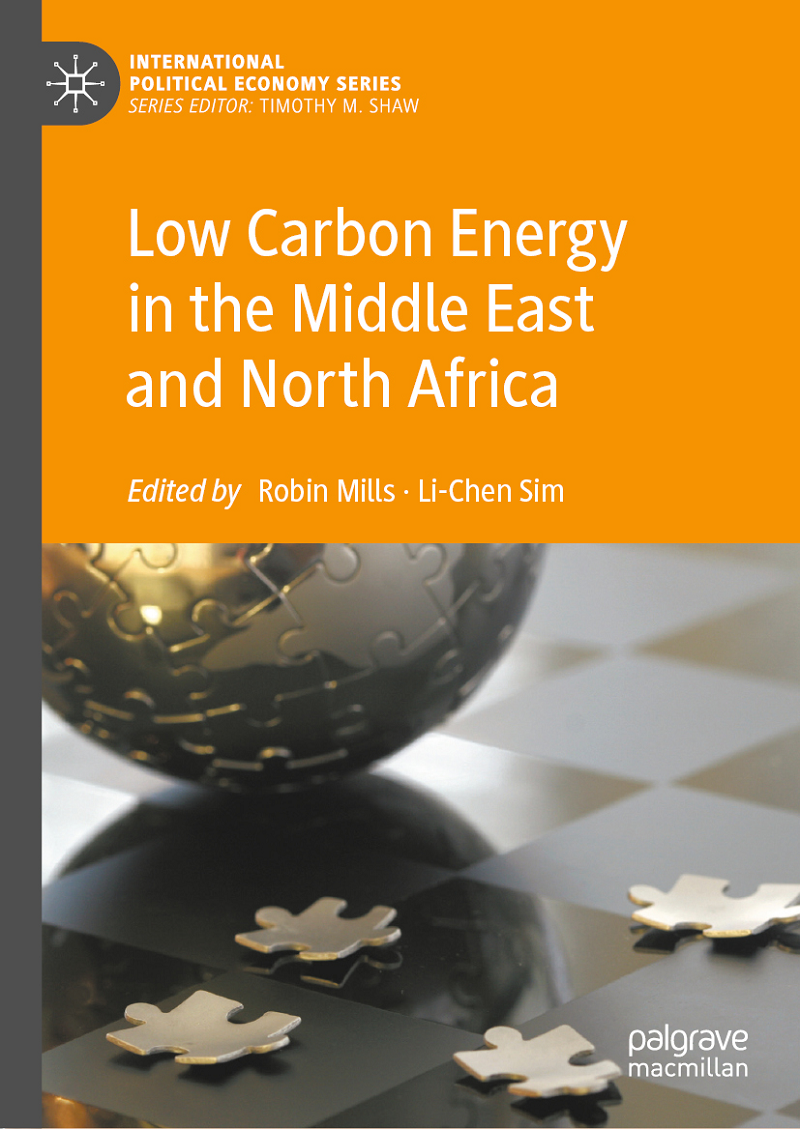
The new book contains 11 essays from leading experts in the field of energy system dynamics
Read Arabic story here.
Dr. Li-Chen Sim, Assistant Professor in the Department of Humanities and Social Sciences at Khalifa University, and Robin Mills, CEO of Qamar Energy and Fellow at the Columbia University Center on Global Energy Policy, have edited a new book detailing how the transition to low-carbon energy in the Middle East impacts the energy system dynamics of the region. Their new book is titled Low Carbon Energy in the Middle East and North Africa.
“The book explores the evolving roles of energy stakeholders and geopolitical considerations, leveraging on the dizzying array of planned and actual projects for solar, wind, hydropower, waste-to-energy, and nuclear power in the region,” explained Dr. Sim. “Over the next few decades, favorable economics for low carbon energy sources combined with stagnant oil demand growth will facilitate a shift away from today’s fossil fuel-based energy system. Will the countries of the Middle East and North Africa be losers or leaders in this energy transition? Will state-society relations undergo a change as a result?”
Compiled by editors Dr. Li-Chen Sim and Robin Mills, the new book contains 11 essays from leading experts in their fields, discussing topics ranging from the rise of renewables in the Gulf states to the development of clean electricity supply in Egypt.
“Our book will interest academics working in the fields of international relations and politics, energy economics, and business,” said Dr. Sim. “Consultants, practitioners, policy-makers, and risk analysts will also find the insights helpful. It suggests that ultimately, politics, more so than economics or environmental pressure, will determine the speed, scope, and effects of low-carbon energy uptake in the region.”
“This book compellingly illustrates how the transition to renewable and nuclear energy may fundamentally change the energy system dynamics of a region that has long been known for hydrocarbon-dependence and political strife,” added Dr. Steve Griffiths, Senior Vice President, Research and Development.
Jade Sterling
Science Writer
30 March 2021